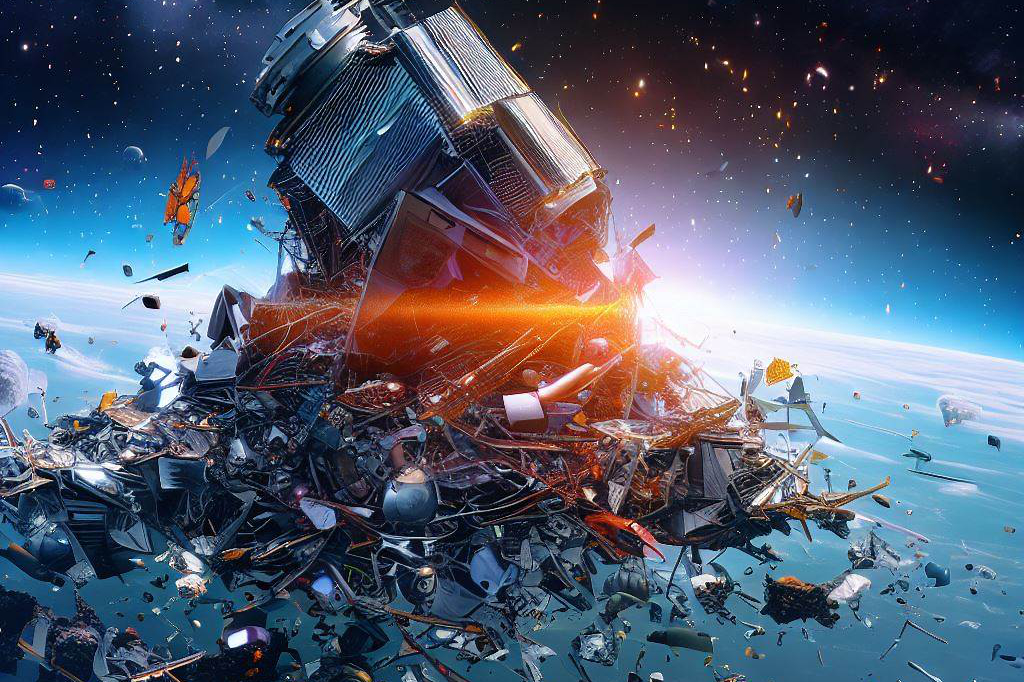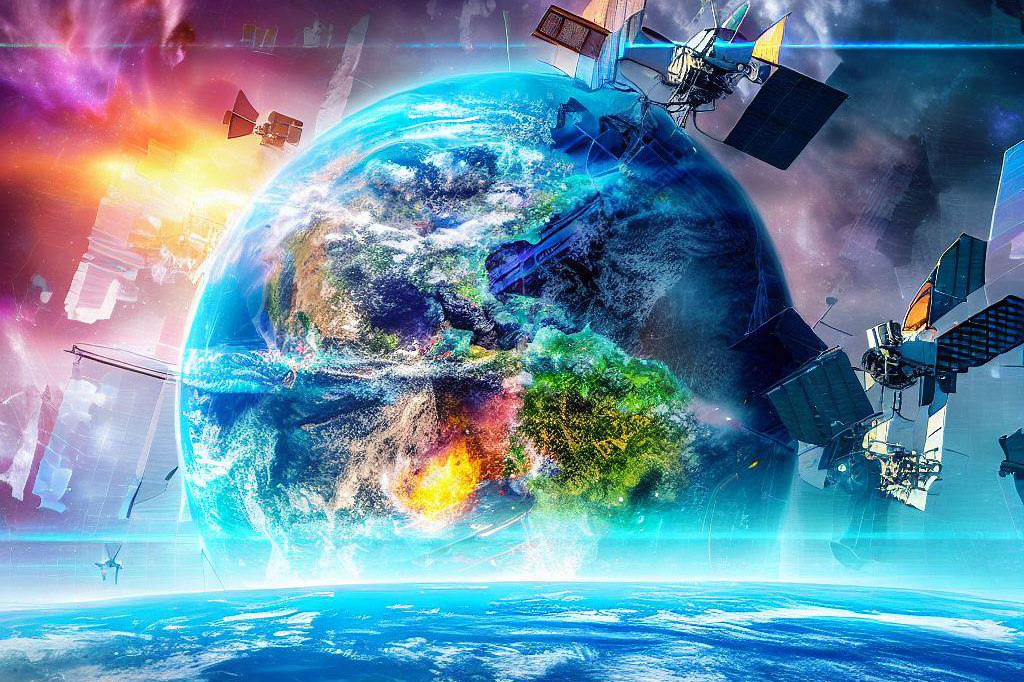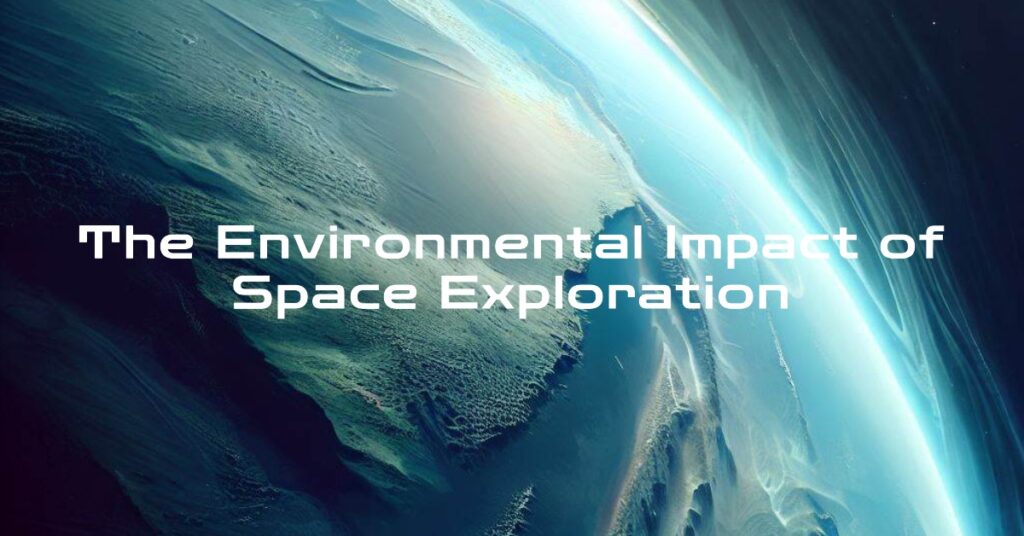The Environmental Impact of Space Exploration
Space exploration has always been a subject of fascination for humanity. From the first steps on the Moon to the continuous exploration of our solar system and beyond, space missions have captured our imagination and pushed the boundaries of human achievement. But while we marvel at the technological advancements and scientific discoveries, it’s crucial to consider the environmental impact of space exploration here on Earth. In this article, we will delve into the ways in which space exploration affects our environment and the steps being taken to mitigate these effects.
1. Launch Operations and Air Pollution
One of the most visible environmental impacts of space exploration is the air pollution generated during launch operations. Rockets use powerful engines that burn a significant amount of fuel, releasing various pollutants into the atmosphere. These emissions contribute to air pollution and can have local and global effects on air quality and climate change.
To address this concern, space agencies and companies are actively developing greener propellants and more efficient rocket engines. By transitioning to cleaner fuels and adopting advanced propulsion technologies, such as electric propulsion and reusable rockets, the environmental impact of launch operations can be reduced significantly.
2. Space Debris and Orbital Pollution

Space debris, also known as space junk, poses a significant environmental threat resulting from space exploration. Over the years, thousands of defunct satellites, spent rocket stages, and fragments of space equipment have accumulated in Earth’s orbit. This debris poses risks to operational satellites and the International Space Station (ISS) and increases the likelihood of collisions, which generate even more debris.
To mitigate the issue of space debris, space agencies and organizations are actively working on debris removal techniques and adopting sustainable space practices. Concepts such as active debris removal missions, satellite deorbiting, and designing satellites for end-of-life disposal are being explored to minimize the accumulation of space debris and ensure the long-term sustainability of space activities.
3. Resource Utilization and Sustainability
Space exploration holds the potential for resource utilization beyond Earth, such as mining asteroids or extracting resources from the Moon. While this can open up new avenues for scientific discovery and economic growth, it also raises questions about the environmental consequences of resource extraction in space and its impact on our planet.
To address these concerns, scientists and engineers are exploring sustainable resource utilization techniques. By adopting responsible mining practices, developing efficient recycling systems, and prioritizing the use of renewable energy sources in space operations, we can minimize the ecological footprint of resource extraction and promote a sustainable approach to space exploration.
4. Earth Observation and Environmental Monitoring

Space exploration has revolutionized our ability to observe and monitor Earth’s environment. Satellites equipped with advanced sensors and imaging technology provide invaluable data for monitoring climate change, tracking deforestation, assessing natural disasters, and studying the health of our oceans and atmosphere.
These observations play a crucial role in understanding the state of our planet and developing effective strategies for environmental conservation and management. By leveraging the wealth of data collected from space, scientists and policymakers can make informed decisions to address environmental challenges and promote sustainable development.
5. Inspiring Environmental Stewardship
Beyond its direct environmental impact, space exploration also has the power to inspire environmental stewardship on Earth. The awe-inspiring images of our planet from space, commonly known as the “overview effect,” have a profound impact on our collective consciousness. They highlight the beauty, fragility, and interconnectedness of Earth, fostering a sense of responsibility and promoting environmental awareness.
Space agencies and educational institutions capitalize on this inspiration by utilizing space-based imagery and experiences to engage and educate the public about environmental issues. Through programs and initiatives that emphasize the importance of Earth’s protection, space exploration serves as a catalyst for environmental action and sustainability.
Looking Ahead
As we continue to push the boundaries of space exploration, it is crucial to recognize and address the environmental
impact of our endeavors. While space exploration offers remarkable opportunities for scientific advancement and technological innovation, we must be mindful of its consequences on Earth’s environment.
To mitigate the environmental impact of space exploration, ongoing efforts are focused on developing cleaner and more sustainable technologies, such as greener propellants, reusable rockets, and responsible resource utilization practices. Space agencies and organizations are also actively working towards debris removal and adopting measures to ensure the long-term sustainability of space activities.
Moreover, space exploration has become an invaluable tool for Earth observation and environmental monitoring. Satellites equipped with advanced sensors enable us to monitor climate change, track deforestation, assess natural disasters, and study various aspects of our planet’s health. By leveraging this data, we can make informed decisions to address environmental challenges and promote sustainable development.
Beyond the tangible impact, space exploration inspires environmental stewardship. The iconic images of Earth from space remind us of the interconnectedness of our planet and the need for its protection. Space agencies and educational institutions harness this inspiration to raise awareness about environmental issues and foster a sense of responsibility towards our planet. By engaging the public and promoting environmental action, space exploration becomes a catalyst for positive change.
Space exploration has undoubtedly impacted our environment, but through innovative technologies, responsible practices, and heightened environmental awareness, we can minimize its ecological footprint. By balancing our quest for knowledge and exploration with sustainable practices, we can ensure that space exploration continues to inspire future generations while safeguarding the planet we call home. Let us embark on this journey of discovery with a deep commitment to environmental stewardship, forging a path towards a sustainable and harmonious coexistence of space exploration and Earth’s environment.

C M, a seasoned editor, journalist, and consultant, is deeply fascinated by the convergence of technology, space, and the future of humanity.
With a particular interest in transhumanity, futurology, and the philosophical and ethical dimensions of these domains, C M serves as the lead contributor to SpaceSpotlight and TranscendSphere.
When not penning insightful articles on these rapidly evolving fields, C M indulges in their love for podcasts and books, proudly embracing their status as a ‘Happy Nerd Extraordinaire!’



